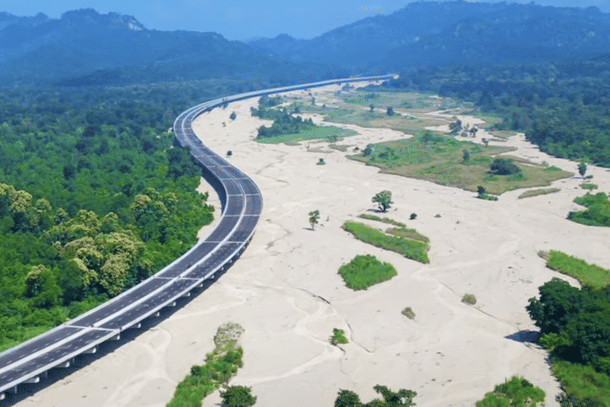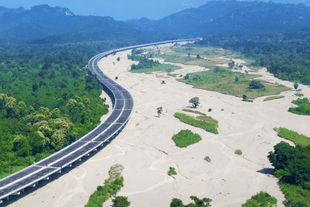News Brief
Delhi–Dehradun Expressway Likely To Open By February 2026 After Multiple Delays: Report
Arjun Brij
Nov 06, 2025, 10:59 AM | Updated 10:59 AM IST
Save & read from anywhere!
Bookmark stories for easy access on any device or the Swarajya app.


The long-awaited Delhi–Dehradun Expressway, a 210 km corridor set to cut travel time between the two cities from six hours to less than three, is now expected to open by February 2026, according to a Hindustan Times report.
Initially slated for completion in December 2024, the Rs 11,868.6 crore expressway has faced multiple delays, with the revised target of October 2025 also being pushed back.
The Prime Minister’s Office (PMO) has reportedly instructed the Ministry of Road Transport and Highways (MoRTH) to inaugurate the expressway only after all four phases are completed.
The first phase—from Akshardham to Khekra in Baghpat has been ready for over six months, while the second, extending up to Saharanpur, is nearing completion.
The third phase, involving the widening of the existing Saharanpur Bypass to Ganeshpur stretch, is in advanced stages, and the final phase near Dehradun, which includes safety and finishing work on the elevated section, is also underway.
An official of the National Highways Authority of India (NHAI) was quoted as saying by HT, “The remaining works including protection measures near the Daat Kali temple in Dehradun, installation of mobile towers, and works in the finishing tunnel are expected to be completed in November.”
The project’s foundation was first laid by Union Minister Nitin Gadkari in February 2021, followed by another ceremony led by Prime Minister Narendra Modi in December the same year.
The expressway passes through Baghpat, Baraut, Shamli, and Saharanpur, linking with the Delhi–Mumbai Expressway, the Eastern Peripheral Expressway, and routes to Haridwar and Roorkee.
A key highlight is the 12 km elevated corridor through Rajaji National Park—Asia’s longest such stretch featuring six animal underpasses.
Despite its significance, the project has faced environmental criticism for large-scale deforestation.
The MoRTH said 17,913 trees were affected, while NHAI pledged to plant 50,600 trees and allocated Rs 40 crore to state forest departments as part of compensatory afforestation efforts.
Please click here to add Swarajya as your preferred and trusted news source on Google
Arjun Brij is an Editorial Associate at Swarajya. He tweets at @arjun_brij




